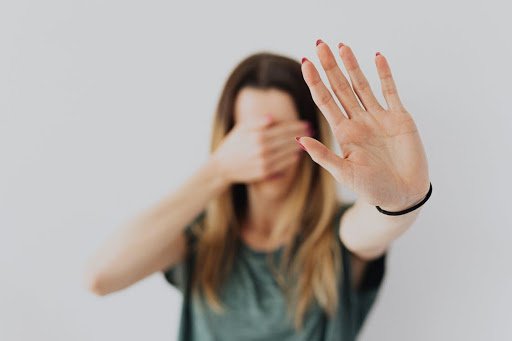Domestic Violence against Women - All you Need to Know & Where to Seek Help
6 minuteRead

Domestic violence, a social evil that is prevalent all around us. Knowingly or unknowingly, we may be all victims of sexual, physical and emotional abuse. Being called out names, taking control of one’s life, forcefully engaging in sexual acts and repeatedly displaying violent behaviour in public, and behind closed doors are all forms of domestic violence. Domestic violence on women is something that is prevalent in our country from time immemorial. Owing to the gender inequalities and the fact that male counterparts consider themselves superior to women, these gruesome acts are committed.
Domestic Violence Definition
According to the United Nations, domestic violence is defined as a pattern of behaviour in any relationship that is used to gain or maintain power and control over an intimate partner. Abuse can be physical, sexual, emotional, psychological or economic. If the offender tries to frighten, threaten, terrorise, hurt, blame or humiliate the victim in a domestic setting, it can be referred to as domestic violence.
Despite several laws and acts against such heinous crimes, violence against women in India still exists. Every single day, domestic violence cases in India are reported. While some incidents are covered, there are several expressions of violence that are still not considered crimes and often go unreported or undocumented. Even today there are several victims of abuse who are hesitant to speak up owing to certain Indian cultural values and beliefs.

Here are some statistics of such unfortunate realities:
- According to WHO, 1 in 3 women globally experiences violence. It can take the form of physical and/or sexual abuse from their intimate partners/non-partners.
- During the COVID-19 lockdown, the cases of domestic violence against women in India increased. It rose to 53% in the first week of the lockdown.
- 86% of women in India who experience violence never seek help while 77% don’t even mention the incidents to anyone.
- 31.1% of married women aged 15-49 years experience spousal violence at least once in their lives.
- The majority of the domestic violence crimes against women were registered under ‘cruelty by husband or his relatives’.
Domestic Violence Laws in India
In India, there are three laws in place that deal directly with domestic violence:
Protection of Women from Domestic Violence Act, 2005
The Protection of Women from Domestic Violence Act 2005 is a civil law that provides protection to women in a household, from men in the household. The law not only applies to married women but also those who are in live-in relationships, as well as family members including grandmothers, mothers, etc. Under this law, women can seek protection against violence, financial compensation, right to live in a shared household and maintenance in case they’re living apart.
Section 3 of the Domestic Violence 2005 Act states that domestic violence includes:
- Threat to health, life, safety, etc. whether physical or mental, including sexual abuse, emotional abuse, verbal abuse and economic abuse.
- Harassment of any form including injuries and harms to the aggrieved person by coercing her or any other person related to an unlawful demand for dowry or any other valuable security.
- Injuring or causing harm through mental or physical assault to the aggrieved person. The aggrieved person includes any woman who has been in a domestic relationship with a respondent and is subject to domestic violence by them.
The law aims at protecting women from abusers. Women are given the right to seek protection against such acts. If a woman is evicted from her matrimonial household, she has the right to seek monetary compensation, safe shelter as well as free legal and medical aid.

Types of Domestic Abuse
Domestic violence causes can take the form of the following:
- Sexual Abuse: It happens when the abuser forcefully tries to make physical contact with the victim without his/her consent. It can even take the form of martial rape. Abusing a partner after sex by causing attacks on the sexual parts of the body is also sexual abuse.
- Physical Abuse: It can be any form of violent conduct inflicted on the victim including slapping, biting, spitting, hitting or kicking. It also includes forcing someone to use alcohol, drug or any substance.
- Emotional Abuse: Emptying the victim’s sense of self-esteem by humiliating and insulting them are forms of emotional abuse. Threats to take away children is also a form of emotional abuse.
- Economic Abuse: Abusers may restrict, exploit, and sabotage the victim’s access to financial resources.
All the above forms of abuse make-up domestic violence against women.
Section 498A of the Indian Penal Code
Domestic Violence IPC (Indian Penal Code) Section 498A is a law that covers cruelty towards married women by their husbands or their husband’s families. Cruelty refers to any conduct that drives a woman to suicide or causes grave injury to her life or health including mental health. It also covers harassment in the name of dowry by the husband’s family members. Acts of cruelty include but are not limited to:
- Physical abuse
- Denying the woman food
- Mental torture
- Locking her in a room or out of the house as a punishment
- Demanding sexual acts in compensation for bad behaviour or against the woman’s will
The section allows a woman’s relatives to make a complaint against the abuser. This is particularly beneficial especially when a woman is afraid to speak up for herself. If convicted under this law, the husband or his family member (s) who is inflicting the abuse can face up to three years of imprisonment and a hefty fine.
The Dowry Prohibition Act, 1961
The Dowry Prohibition Act is a criminal law that punishes the taking and giving of dowry. Dowry means transferring the parental property at the time of marriage to their daughter. It is a system that involves providing financial assistance to the groom’s family in the form of gold, money and property.
According to this act, giving, taking or even demanding dowry can result in six months imprisonment and a fine up to Rs. 5,000.
Seeking Help against Domestic Violence: Procedure & Helpline Numbers
National Commission for Women
The National Commission for Women (NCW) is a government body in India that aims to safeguard the interest of women, recommend remedial legislative measures, facilitate redressal of grievances and advise the government on all policy matters affecting women.
Besides helping women understand their basic rights, the organisation also has a complaint and investigation cell where women can file complaints regarding domestic violence.
The website also has a section that addresses user queries.
The domestic violence helpline number is 181. This is the national helpline number whereas the women police helpline numbers are 1091 and 1291.
Where to Complain Against Domestic Violence?
File an FIR
As a woman, if you feel like you are or going to be a victim of domestic violence, you can always go to your nearest police station to file an FIR, also known as First Information Report. The police officer on duty can’t refuse your complaint and has to register it.
There may be an instance when a police officer tells you that a particular case/incident does not fall under their jurisdiction. Instead of leaving from there without filing one, you can instead ask them to register a ZERO-FIR. This means, an FIR can be filed in any police station irrespective of place of incident/jurisdiction. The same can later be transferred to the appropriate police station after investigation.
Before you leave the police station, please check the FIR to ensure there is no discrepancy. Sign it only if the information in the document matches the incident you narrated to the concerning officer.
Online FIR
You can also file an FIR online if your state has the facility. Alternatively, you can even file a complaint on the National Commission for Women website. Once you fill the form with the necessary details and press the submit button, you will receive a receipt number which you will have to note down. This will help you obtain your file number, user ID and password within 10 days of filing the complaint.
Useful Domestic Violence Helpline Numbers
All India
Dial 1091. A toll-free number answered by women in the police force. It provides immediate rescue for distressed women.
National Commission for Women (NCW) | 011-26942369, 26944754 |
National Human Rights Commission | 087623 54232 |
Delhi Commission for Women | 011-23379181, 23370597 |
Delhi Women Protection Cell | 011-24673366/ 4156/ 7699 |
Jagori | 011-26692700 |
Multiple Action Research Group (MARG) | 011- 26497483 |
SNEHA Mumbai | 022-2661 4488 |
Ashraya Women’s Centre, Bengaluru | +91-8025251929 |
Abhayashrama | 080-22220834, 080-22121131 |
Tamil Nadu Women Helpline | 044-28592750 |
AKS Foundation, Pune | +91-8793088814/15/16 |
There are several women in our country who have been trapped in an abusive environment for years. It is a vicious cycle since a lot of women don’t speak up owing to social stigma, public shame and scrutiny. However, this has led to offenders roaming scot-free. Another reason a woman does not report domestic violence cases is due to lack of information about remedial actions especially in rural areas and economic dependence on their partners.
Now is the time to react against domestic violence, take a stand and ensure strict action is taken against the abuser/offender.
Write, Record and Answer! Consume Unlimited Content! All you need to do is sign in and its absolutely free!
Continue with one click!!By signing up, you agree to our Terms and Conditions and Privacy Policy.











